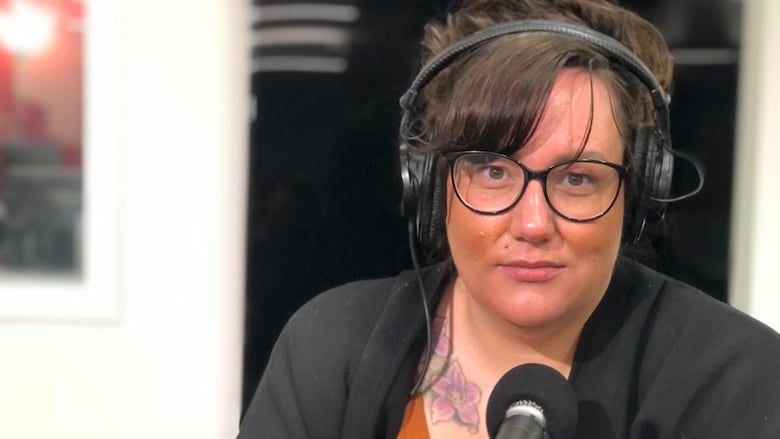Meet Frances Elizabeth Moore, CBC London co-host for National Indigenous Peoples Day
New child care centre opening this summer to serve as a 'safe space' for Indigenous kids: Moore

Monday marks National Indigenous Peoples Day, a day to honour and celebrate the cultures and contributions of the First Nations, Inuit and Métis peoples of Canada.
In honour of this day, CBC London invited Frances Elizabeth Moore to co-host the London Morning radio program with host Rebecca Zandbergen.
Moore, an Anishinaabe woman from Timiskaming First Nations, grew up largely in Toronto but has been part of the urban Indigenous community in London, Ont., for the more than 15 years.
Moore is the family centre manager with the Nshwaasnangong Child Care & Family Centre, which is set to open in the city's SoHo neighbourhood at the end of August and will offer traditional language and cultural programming.
"Our goal is to help revitalize Indigenous languages and cultures, especially in the early years," Moore said.
The facility, which will operate under the Southwest Ontario Aboriginal Health Access Centre (SOAHAC), will be a safe space for Indigenous children under the age of six to come and be themselves, Moore said, and to explore their gifts and to learn from community members.
In May, when news emerged that the remains of about 215 Indigenous children were detected at a former residential school in Kamloops, B.C., conversations about intergenerational trauma were reignited.
"It's tough, I'm not going to lie, it's not been lost on me that we are opening up a centre for Indigenous children and it needs to be a safe space," she said.
"It needs to be a safe space because of that intergenerational trauma that many of our families felt, and still feel."
The centre is also intended for children to be grounded and rooted in their culture and to give them a strong sense of who they are, she said.
"I wish something like this was around when I was a young one," Moore said. "I'm incredibly blessed to be a part of it."
The name given to the child care centre, Nshwaasnangong, means "Place of the eighth star" in Anishinaabemowin.
According to an Ojibwe story, long ago the Big Dipper had eight stars and one of these stars fell to the earth, leaving the Big Dipper of today with seven stars, according to the SOAHAC website. "The Eighth Star that had fallen to Earth became the Anishinaabe people. With it came all of the gifts of the sky world: Anishinaabe culture, teachings and language," it says.

"Issues like Missing and Murdered Indigenous Women and Girls, human trafficking, children in care, over representation in the justice system, inadequate housing, lack of clean water on reserve ... are all incredibly important issues — but that's not all that we are," Moore said.
"We are not just the sum of our parts. If you only focus on the issues you miss out on Indigenous joy, Indigenous excellence, Indigenous perseverance and so much more."
Moore remains optimistic but aware that obstacles are prevelent for Indigenous people.
"I honestly don't know if I'd be the woman I am today if I hadn't experienced what I've experienced in my thirty-something years. And while I've made it through 100 per cent of my bad days and experiences and have somehow managed to thrive — we, as Indigenous peoples shouldn't have so many barriers to success."
You can read more about the Nshwaasnangong Child Care & Family Centre on its website.